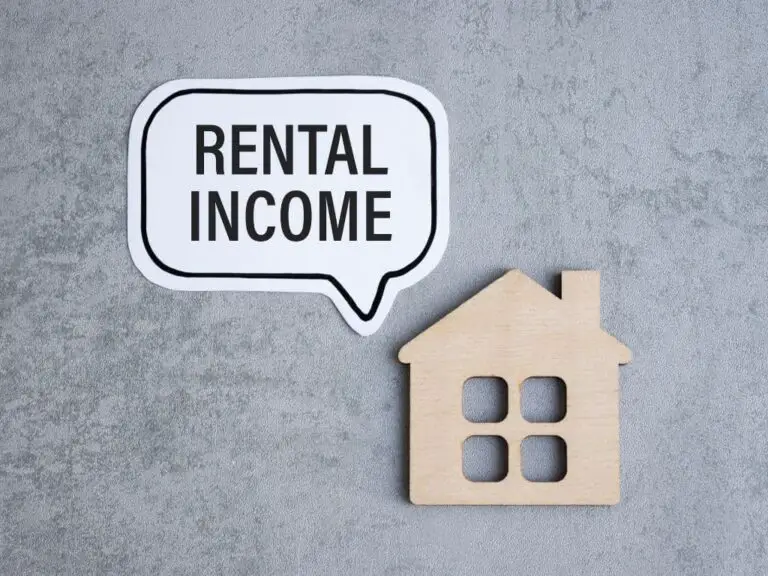What Is Low Income for Seniors in California?
What is low income for seniors in California? In California, low income for seniors is defined as households with an annual income of less than 80% of the median income for the area. According to data from the US Census Bureau, the median income for seniors in California is $48,615.
Below is a table with limits as set by the U.S. Department of Housing and Urban Development (HUD) for the Section 8 Housing Choice Voucher Program.
| Income Limits | Income Range |
|---|---|
| Acutely low income | 0-15% of AMI |
| Extremely low income | 15-30% of AMI |
| Very low income | 30% to 50% of AMI |
| Lower income | 50% to 80% of AMI |
| Moderate income | 80% to 120% of AMI |
To assist seniors with low incomes in accessing affordable housing options, the California government provides several programs. These programs aim to alleviate the housing burden for seniors by offering subsidized or low-income housing opportunities.
Some of the prominent low-income housing programs available to low-income seniors in California include the Housing Choice Voucher Program (Section 8), subsidized housing complexes, public housing, the Low-Income Housing Tax Credit, and the Section 202 Supportive Housing for the Elderly.
California also offers various services and resources for low-income seniors through initiatives like the Aging and Disability Resource Connection, CalFresh Healthy Living, CareGiver Resource Centers, Digital Inclusion, the Dignity At Home Fall Prevention Program, Family Caregiver Services, and Medicare Counseling (HICAP).
These programs provide information, support, training, and assistance to help seniors lead healthier, more independent lives.

What is the Definition of Low-Income for Seniors in California?
Low income for seniors in California refers to households headed by individuals who are aged 65 or older and have an annual income that falls below a specific threshold. In the context of determining low income for seniors, the threshold is typically set at 80% of the median income for the area in which they reside.
This threshold takes into account the local cost of living and economic conditions, allowing for a more accurate assessment of financial need.
To assist seniors with low incomes in accessing affordable housing options, the California government provides several programs. These programs aim to alleviate the housing burden for seniors by offering subsidized or low-income housing opportunities.
Some of the prominent low income housing programs available to low-income seniors in California include:
- Housing Choice Voucher Program (Section 8): The Section 8 program in California provides rental assistance to eligible seniors, allowing them to secure housing in the private market. Seniors receive vouchers that cover a portion of their rent, with the remainder being paid by the senior based on their income.
- Subsidized Housing: The state offers subsidized housing complexes specifically designed for low-income seniors. These complexes provide affordable rental units and often include supportive services tailored to the needs of older adults.
- Public Housing: Public housing units, managed by local housing authorities, are another option for low-income seniors. These units are typically available at reduced rental rates, making them more affordable for seniors with limited incomes.
- Low-Income Housing Tax Credit: This program encourages the development of affordable housing units by providing tax incentives to developers. As a result, seniors with low incomes can access housing options at reduced rental rates.
- Section 202 Supportive Housing for the Elderly: This program focuses on providing housing and supportive services to low-income seniors who may also require assistance with daily activities. These housing communities typically offer a range of amenities and resources to enhance the well-being of elderly residents.
By utilizing these government programs, low-income seniors in California can access affordable housing options that align with their financial capabilities. These initiatives strive to ensure that seniors have access to safe, decent, and affordable housing, fostering a better quality of life for this vulnerable population.
What is the California Median Income for Seniors?
The California Median Income for Seniors is $48,615 compared to the countrywide median income of $67,903. This indicates that, on average, senior households have less income available to them compared to the overall population.
Specific median income for seniors may vary across different counties in California. Economic factors, such as inflation and changes in the cost of living, can also influence income levels over time.
Despite having a lower median income, seniors often possess certain assets that contribute to their financial stability. For instance, a higher percentage of seniors own their own homes rather than renting (76% compared to 56% among non-seniors).
A greater proportion of senior homeowners have fully paid off their mortgages, owning their homes outright (47% compared to 21% among non-senior homeowners). These assets can provide seniors with a sense of financial security and stability, even if their income is relatively lower.
What Programs and Services are Available for Low-Income Seniors in California?
Aging and Disability Resource Connection
The Aging and Disability Resource Connection (ADRC) in California is a network of services for seniors and adults with disabilities provided by local Area Agencies on Aging. The services offered include enhanced information and referral services, options counseling, short-term service coordination, and transition services. Eligibility for these services is open to anyone regardless of age, income, and disability.
CalFresh Healthy Living
CalFresh Healthy Living (formerly SNAP-Ed) is a program offered by the California Department of Aging that provides classes and information to help low-income older adults lead a healthy lifestyle. This program offers activities to eat healthy on a budget, live a healthy lifestyle, and eat a balanced diet. It serves people who are at least 60 years old and have low-income (qualify for CalFresh benefits).
CareGiver Resource Centers
Caregiver Resource Centers (CRCs) are a statewide network of support organizations in California for families and caregivers of those with Alzheimer’s disease, stroke, Parkinson’s disease and other disorders. These centers provide specialized information and referral, family consultation and care planning, respite care, short-term counseling, support groups, professional training, legal and financial consultation, education, and additional resources. CRCs offer these services at low or no cost to families and caregivers in California.
Digital Inclusion
Digital Inclusion in California is an effort to bridge the digital divide by providing eligible Californians with access to affordable high-speed internet, devices, and digital literacy skills. Through this initiative, California residents can access meaningful content and tools to meet their needs, such as staying connected with family and friends or attending appointments. The California Department of Aging has programs in place to provide technology devices, service plans, and digital literacy training.
Dignity At Home Fall Prevention Program
The Dignity At Home Fall Prevention Program in California is a state-funded program aimed at reducing the number of debilitating falls experienced by older adults and people with disabilities. The program provides a variety of services such as fall prevention information, in-home environmental assessments, home modifications and injury prevention equipment to individuals with disabilities or those aged 60 or over, with adjusted household incomes not exceeding 80 percent of the area median income. The program is administered by the California Department of Aging and local Area Agencies on Aging.
Family Caregiver Services
Family Caregiver Services in California is a program offered by the California Department of Aging, in partnership with local Area Agencies on Aging, that provides support to adult family members and informal caregivers of elderly and disabled individuals. The program provides training and respite care, as well as assistance to relatives providing care to children and individuals with disabilities. To qualify for the program, individuals must be at least 18 years old and the individuals they are caring for must be at least 60 years old or have Alzheimer’s disease or a related disorder.
Medicare Counseling (HICAP)
Medicare Counseling (HICAP) in California is a free and confidential one-on-one counseling service provided by trained counselors to individuals and their families on Medicare, Long-Term Care insurance, other health insurance related issues, and planning ahead for Long-Term Care needs. It provides education events and legal assistance or legal referrals in dealing with Medicare or Long-Term Care insurance related issues for persons 65 years of age or older and those with disabilities. HICAP counselors are available throughout the state and provide counseling to persons soon to be eligible for Medicare.






